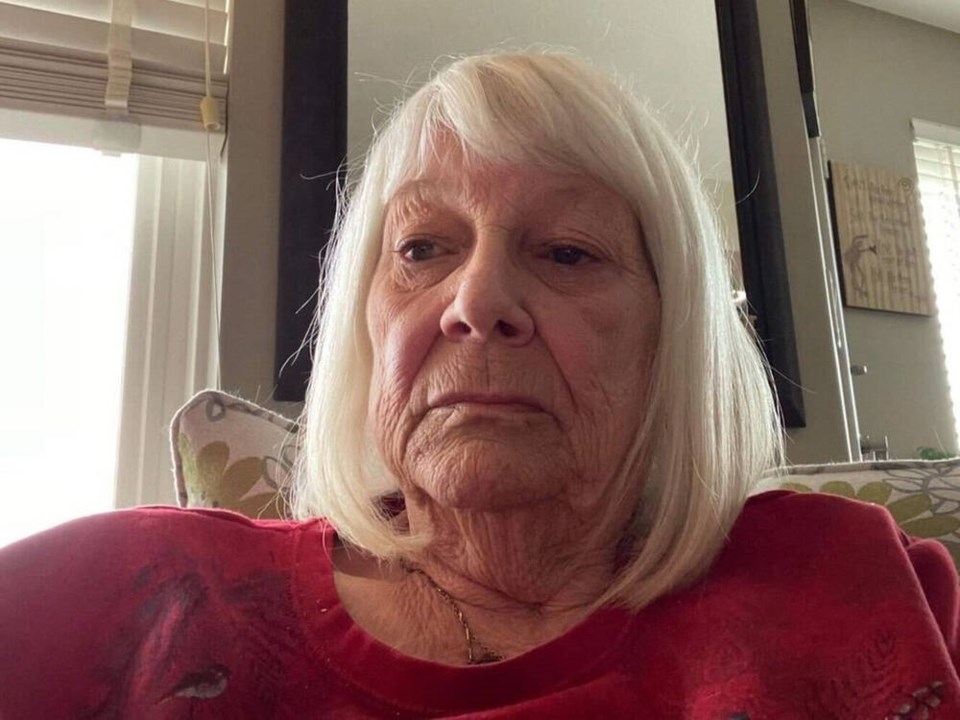A 76-year-old from Campbell River said lower-income seniors like her are being left behind by the B.C. NDP government’s rental assistance program, which advocates say is leaving many renters behind.
Nora Plamondon-Henry currently pays $1,400 a month living in her sister-in-law’s condo. After hearing that her relative has plans to sell, Plamondon-Henry has been looking for another rental in the North Island town.
She filled out a tenancy application for a newer one-bedroom apartment listed for $1,600 a month but was turned down because the property manager said she doesn’t make enough.
On Wednesday, when Plamondon-Henry looked into help paying her rent through the government’s shelter aid for elderly renters program, known as SAFER, she discovered she makes too much to qualify.
“I was upset,” she said. “I am so tired of hearing I don’t meet their criteria.”
Plamondon-Henry lives on about $2,500 a month from the Canada Pension Plan, old age security and a pension from her late husband Robert, who spent 50 years working for the forestry service. That puts her just over the income threshold requiring seniors living alone to make $29,352 a year or less to qualify.
Speaking to fellow seniors at the Campbell River Senior’s Centre, Plamondon-Henry discovered many are in the same position.
These programs “are not working,” she said. “There are no other options for me. The system is broken.”
That echoes the finding of a report released last week by B.C. seniors advocate Isobel Mackenzie, who said subsidies for the one in five seniors who rent have fallen “dramatically short” of what they need to continue living in their own homes.
Mackenzie said during a news conference when the report was released that the SAFER program has a maximum subsidy of $803 a month, a fraction of the average rent in cities like Victoria and Vancouver.
More frustrating, she said, is that in the past five years, B.C.’s senior population has increased but the proportion of seniors receiving the SAFER subsidy has dropped by 14 per cent.
For those who do qualify, the average subsidy fell by eight per cent despite a 12 per cent increase in monthly rents for SAFER clients, the report found. Mackenzie said the average person using SAFER is making less than $21,000 a year.
Rental subsidies are also reduced when seniors get annual increase in pensions and other supports, Mackenzie said.
The SAFER program has a single income limit of $30,600 and a couple income limit of $33,000 in the Lower Mainland, and single income limit of $29,352 and a couple income limit of $31,992 elsewhere in the province. The B.C. Green Party is calling on the government to increase the limits to $45,000 for an individual and $50,000 for a couple, regardless of location within the province.
Unwilling to sit idle, Plamondon-Henry said she and other seniors are planning a march in Campbell River to raise awareness about how the affordability crisis has impacted her generation.
“Nobody seems to care about the seniors and the predicament we are in, especially if you’re a widow. We are the forgotten,” she said. “So we decided this summer we’re going to march down the main street with all our signs.”
Douglas King, executive director of Victoria-based rental advocacy group Together Against Poverty Society, said he sees a lot of seniors who have been living in apartments for a long time with rents that are affordable because of rent control.
“And the danger for them is if they’re evicted, and they have to find a new place, the increase in rent is far more than what SAFER would cover,” King said. “Disability [payments] or pension plus SAFER just doesn’t cut it anymore. So it’s losing effectiveness, really.”
Asked about the income threshold for rental assistance programs, Housing Minister Ravi Kahlon said B.C. Housing has just finished a review of the program and hinted at an announcement in the coming weeks.
“We are looking at how we can reform that to ensure that it meets the needs of seniors today,” Kahlon said during an affordable housing announcement Tuesday in Surrey. “We know that more and more seniors are starting to face real challenges when it comes to finding housing and just the challenges of affordability.”
Plamondon-Henry hopes those changes come soon enough to help her so she doesn’t have to resort to living out of her car with her cat.
She recalls telling her friends at the seniors centre: “I give up. I don’t know where to go, what to do. I’m done.”
— With files from The Canadian Press
>>> To comment on this article, write a letter to the editor: [email protected]



